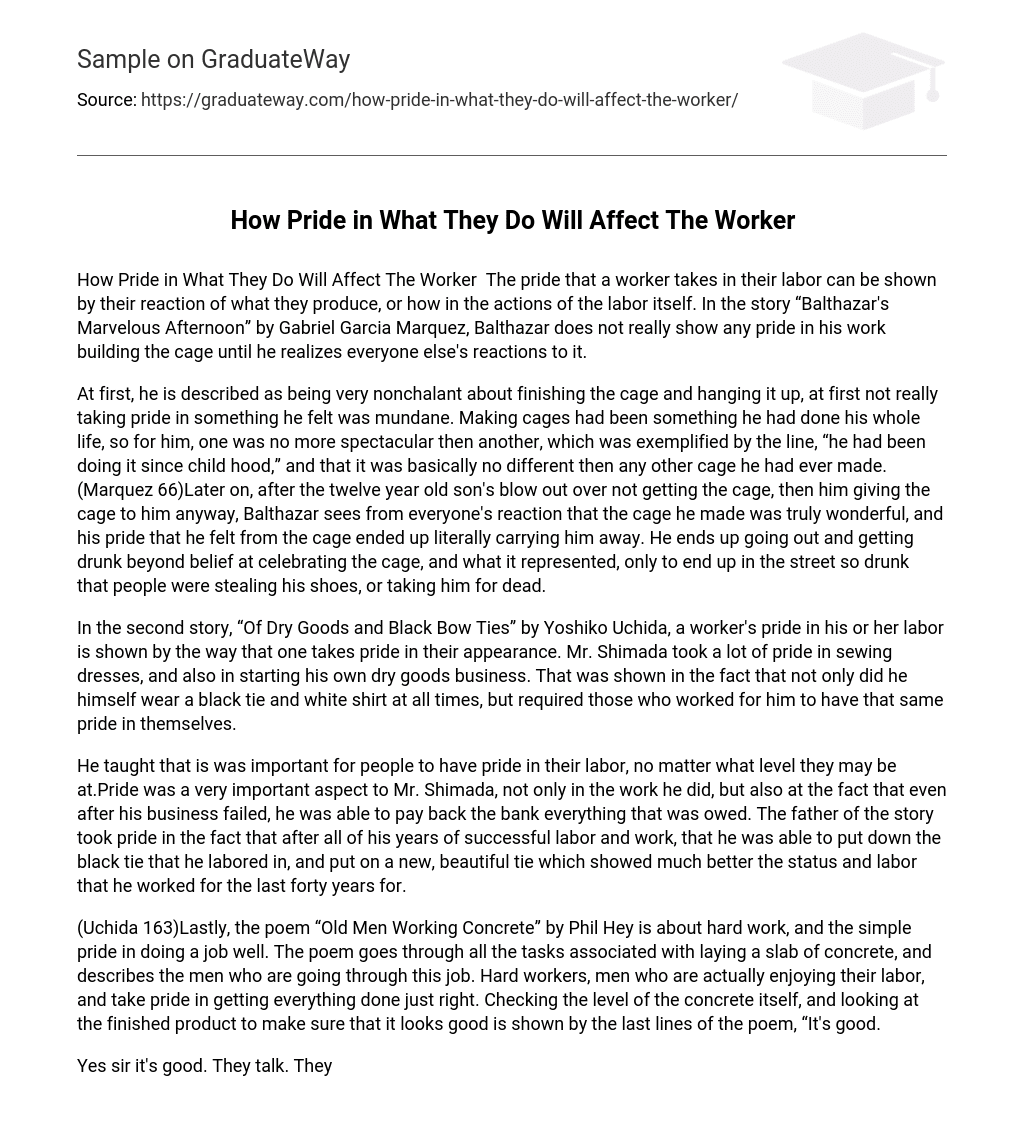The pride that a worker takes in their labor can be shown by their reaction of what they produce, or how in the actions of the labor itself. In the story “Balthazar’s Marvelous Afternoon” by Gabriel Garcia Marquez, Balthazar does not really show any pride in his work building the cage until he realizes everyone else’s reactions to it.
At first, he is described as being very nonchalant about finishing the cage and hanging it up, at first not really taking pride in something he felt was mundane. Making cages had been something he had done his whole life, so for him, one was no more spectacular then another, which was exemplified by the line, “he had been doing it since child hood,” and that it was basically no different then any other cage he had ever made. (Marquez 66)
Later on, after the twelve year old son’s blow out over not getting the cage, then him giving the cage to him anyway, Balthazar sees from everyone’s reaction that the cage he made was truly wonderful, and his pride that he felt from the cage ended up literally carrying him away. He ends up going out and getting drunk beyond belief at celebrating the cage, and what it represented, only to end up in the street so drunk that people were stealing his shoes, or taking him for dead.
In the second story, “Of Dry Goods and Black Bow Ties” by Yoshiko Uchida, a worker’s pride in his or her labor is shown by the way that one takes pride in their appearance. Mr. Shimada took a lot of pride in sewing dresses, and also in starting his own dry goods business. That was shown in the fact that not only did he himself wear a black tie and white shirt at all times, but required those who worked for him to have that same pride in themselves.
He taught that is was important for people to have pride in their labor, no matter what level they may be at. Pride was a very important aspect to Mr. Shimada, not only in the work he did, but also at the fact that even after his business failed, he was able to pay back the bank everything that was owed. The father of the story took pride in the fact that after all of his years of successful labor and work, that he was able to put down the black tie that he labored in, and put on a new, beautiful tie which showed much better the status and labor that he worked for the last forty years for.
Lastly, the poem “Old Men Working Concrete” by Phil Hey is about hard work, and the simple pride in doing a job well. The poem goes through all the tasks associated with laying a slab of concrete, and describes the men who are going through this job. Hard workers, men who are actually enjoying their labor, and take pride in getting everything done just right. Checking the level of the concrete itself, and looking at the finished product to make sure that it looks good is shown by the last lines of the poem, “It’s good. Yes sir it’s good. They talk. They dip snuff. They are happy. ”
This really shows the pride that the concrete workers take in their labor. No matter what the person or what type of labor they do, everyone certainly takes a bit of pride in their work. Whether they take pride in other’s reactions of their work like Balthazar, or in the fact that they have labored so much over the space of forty plus years, or simply by standing in front of the product of their labor, admiring together what they have created. A worker’s pride in his or her labor is what makes the worker strive to do the best they can, and to keep going in what ever they do.





